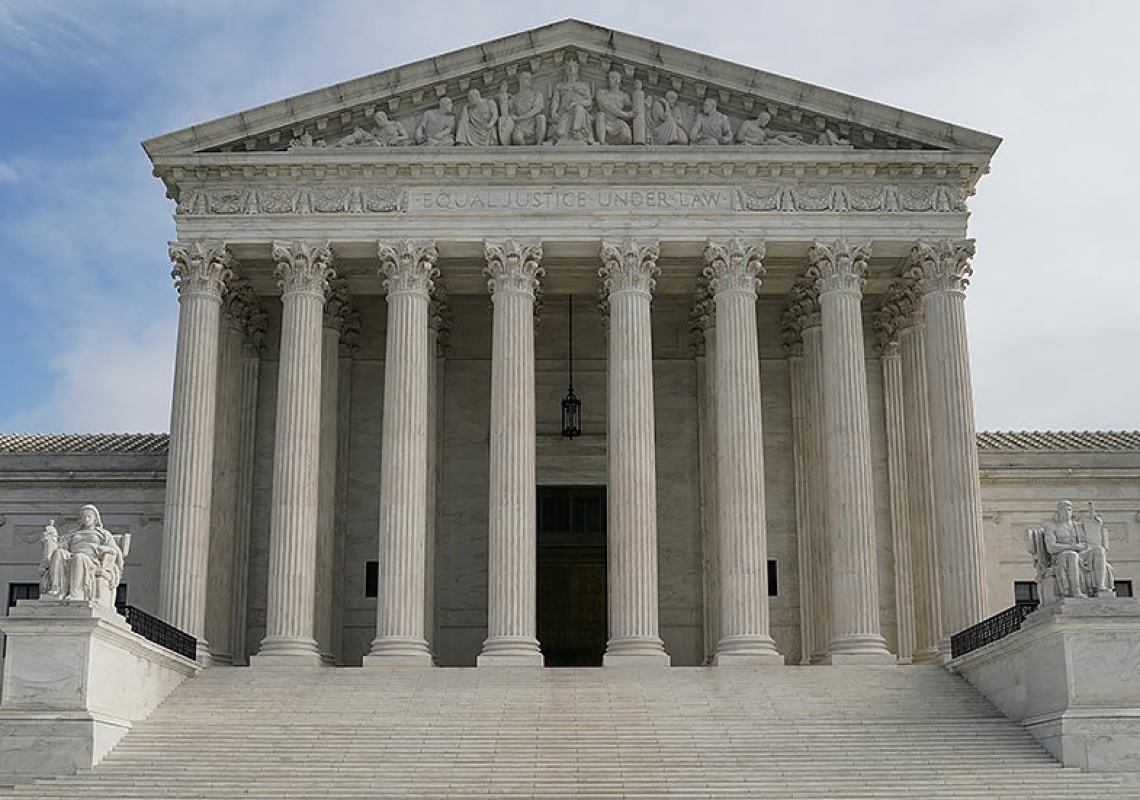© 1998-2021 Nexstar Media Inc.
All Rights Reserved
The Supreme Court is poised for a whirlwind end of term, with justices expected to clear the court’s docket of more than 20 pending cases before July.
The remaining disputes could yield several landmark decisions and provide the clearest indication yet of the 6-3 conservative court’s increasingly rightward tilt, with former President Trump Donald TrumpBiden may face midterm reckoning on Supreme Court reform Joe Manchin, the climate Grinch Trump spokesman suing Jan. 6 panel, says he is cooperating with investigation MORE’s nominees now accounting for three of the nine justices.
Donald TrumpBiden may face midterm reckoning on Supreme Court reform Joe Manchin, the climate Grinch Trump spokesman suing Jan. 6 panel, says he is cooperating with investigation MORE’s nominees now accounting for three of the nine justices.
Here are five big cases to watch.
Same-sex foster parents and religious liberty
The court will soon decide a case that pits the religious rights of a Catholic foster care agency against protections for same-sex couples.
The dispute arose when Philadelphia cut ties with the foster agency after learning the group’s religious convictions barred it from placing children in the homes of gay and lesbian couples. The city determined that the agency’s refusal violated an ordinance prohibiting discrimination on the basis of sexual orientation.
The agency, run by Catholic Social Services, sued on the grounds that Philadelphia had run afoul of the group’s religious rights under the First Amendment.
The conservative-majority Supreme Court has been largely sympathetic to religious rights claims in recent years, and the case could see the justices go even further in granting exemptions to religious groups.
The case, Fulton v. City of Philadelphia, No. 19-123, was argued Nov. 4.
ObamaCare challenge
The future of ObamaCare hangs in the balance this term, though many legal experts believe the landmark health care law will survive in some form.
This is the third major challenge to ObamaCare, or the Affordable Care Act (ACA), to reach the Supreme Court in roughly a decade. The case arose when 18 GOP-led states sued after Congress in 2017 stopped enforcing a tax penalty on most Americans who refused to buy health insurance.
The Republican challengers argued that the government’s nonenforcement of the health care mandate rendered that provision of the 2010 law illegal. Further, they argued that because the mandate is essential to prop up the entire law, its elimination should cause the entire ACA to be wiped off the books.
The court faces three options: reject the GOP argument and preserve the law altogether, remove the tax penalty while leaving the rest of the law intact or strike down ObamaCare entirely.
Overturning former President Obama’s signature legislation would throw more than 20 million people off insurance rolls, according to the Urban Institute. Many court watchers, however, doubt that the court will strike down the ACA.
The case, Texas v. California, No. 19-1019, was argued Nov. 10.
Voting rights
The justices will soon issue a decision that could change the scope of federal voting protections for minorities. The case comes as GOP-crafted voting restrictions make their way through state legislatures across the country, raising the stakes of the court’s forthcoming opinion.
The case before the justices concerns a pair of voting limits in Arizona. One of the disputed policies requires election officials to throw out entire ballots cast in the wrong precinct, even for statewide races where a voter’s polling place has no bearing on the outcome of the contest.
The second Arizona policy at issue generally forbids so-called ballot harvesting, a practice that involves third parties collecting and delivering early votes.
Republican defenders of the two policies argue they’re necessary to protect against voter fraud and ensure election integrity. Democratic challengers counter that the restrictions aim to suppress the vote of minorities, who tend to vote for Democrats.
At issue in the case is whether Arizona’s procedures run afoul of the Voting Rights Act of 1965 (VRA), which makes it illegal to deny or abridge citizens’ right to vote on account of race. The Supreme Court, in a 5-4 vote, gutted a separate provision of the VRA in its 2013 decision in Shelby County v. Holder.
This term’s dispute, Brnovich v. Democratic National Committee, No. 19-1257, was argued March 2.
NCAA athlete compensation
The justices will soon weigh in on the lawfulness of restrictions placed on certain student-athlete compensation.
The case stems from a group of athletes who sued the NCAA for allegedly violating antitrust laws by restricting the education-related benefits that players can receive. Federal antitrust law bars certain restraints on competition for talent and labor.
The athletes claimed that the NCAA illegally interfered in the market by limiting the schools from providing players computers, study abroad programs, graduate school tuition and other perks in exchange for playing on college sports teams, which can generate enormous revenue for schools.
The NCAA countered that allowing more generous compensation would erode the unique “amateurism” model that distinguishes college athletics from professional sports.
The case, National Collegiate Athletic Association v. Alston, No. 20-512, was argued March 31.
Student free speech
A potential landmark First Amendment decision looms over a case concerning how much control schools have over off-campus student speech.
The dispute arose after a high schooler took to social media to post an expletive-filled message trashing her school following her rejection from the varsity cheerleading squad.
During the weekend and while not on school grounds, she posted a picture on Snapchat of herself and a friend, middle fingers raised, with the caption, “f— school f— softball f— cheer f— everything.”
After she was punished with a yearlong suspension from cheerleading — she was a member of the junior varsity squad at the time — the teen filed a lawsuit against the school.
The court has long recognized that schools wield certain authority over speech that occurs on campus. The question in this case is whether to extend that reach further, as the social media era continues to blur the line between on- and off-campus speech.
The case, Mahanoy Area School District v. B.L., No. 20-255, was argued April 28.
View the discussion thread.
The Hill 1625 K Street, NW Suite 900 Washington DC 20006 | 202-628-8500 tel | 202-628-8503 fax
The contents of this site are © 1998 – 2021 Nexstar Media Inc. | All Rights Reserved.






